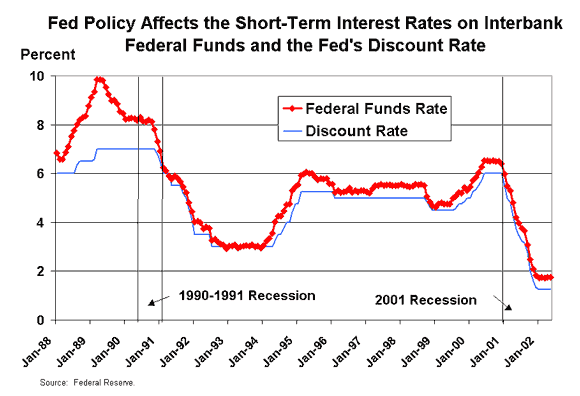
But hold your horses because not everyone will get a bonus share! For a partly paid share, the company’s stock is partially paid for and covers the entire issue price. In simple terms, an investor can purchase a share by paying for a part. However, they must pay the entire price when the company makes a call. So, the company’s equity share capital becomes (100 x 10,00,000) Rs 10 crores. Companies maintain a percentage of profit earned in a financial year in the free reserves account.
Zerodha displays the bonus quantity only after it has been credited. Bonus and stock splits have similar impacts, but there is a difference in the face value of the shares. It usually takes 15 days from the record date for the Bonus shares to be credited to your demat account, but this depends on the registrar and share transfer agent (RTA). Until the bonus shares are credited to your demat account, your holdings might show an “artificial” loss. Once the bonus shares are credited to your demat account, your profit and loss will be restored, and the “true” value of your portfolio would be reflected.

Big companies like Infosys, Wipro and ITC have done this in the past. Bonus share issues by financially strong companies can be a good sign and can boost investors’ confidence in the company. It shows that the company is committed to its shareholders and is in a good financial standing. These shares are given on the basis of the number of shares the investor already holds. Bonus shares increase the company’s total number of shares in the market.
Who Gets The Bonus Share?
Hence, it is like the payment of dividends as shares instead of cash. Further, the proportion of their existing holdings acts as a base for the allotment of bonus shares to the equity shareholders. It is not just the company’s shareholders who stand to gain but new investors too. If you are new to the trading market and looking for the right investment time, you may want to watch out for upcoming bonus shares announcements. However, bonus shares do not increase the market value of an investor’s shareholding.
Here is a summary that clarifies these two features that the Group offers its Shareholders. By using this website, you understand the information being presented is provided for informational purposes only and agree to our Terms of Service and Privacy Policy. Teji Mandi relies on information from various sources believed to be reliable, but cannot guarantee the accuracy and completeness of that information. Nothing in this communication should be construed as an offer, recommendation, or solicitation to buy or sell any security.
Can Holding Bonus Shares Can Benefit Shareholders?
Fully-paid bonus shares – These shares are when bonus shares are distributed at zero additional cost in relation to the shareholder’s shares in the company. They are issued out from many different sources, such as capital redemption reserves, profit and loss accounts, investment allowance reserves, security premium accounts, etc. When bonus shares are issued, the share price decreases based on the ratio of the issue, but the total investment value of the held stocks remains the same. The remaining value is then given to the shareholders in the form of bonus shares. The balance amount is credited to the shareholder’s registered bank account if the eligible bonus shares are not in whole numbers.
Kindly note that the content on this website does not constitute an offer or solicitation for the purchase or sale of any financial instrument. The value of the securities may fluctuate and can go up or down. Neither our company, nor its directors, employees, trainers, or coaches shall be in any way liable for any claim for any losses (notional or real) or against any loss of opportunity for gain. The trading avenues discussed, or views expressed may not be suitable for all investors/traders.

She has previously worked at CNBC-TV18, Thomson Reuters, The Economic Times and Entrepreneur.
Decarbonizing the industry and the importance of support from Air Liquide’s individual Shareholders
On June 8, 2022, Air Liquide made its 31st attribution of free shares. A Multi-Cap portfolio of stocks that consists of tactical bets and long-term winners that generate index-beating returns. The stock price will now be Rs 50 instead of Rs 100 as it will accommodate eligibility for bonus shares the change. Hissa by Rulezero is an all-in-one equity management platform that unlocks the full potential of equity ownership —from incorporation to exit. Before you read further, are you looking for other avenues of investment like mutual funds to park your money?
- So, if you purchased BEL on 15th September 2022, the seller will get the bonus share instead of you.
- Bonus share issues by financially strong companies can be a good sign and can boost investors’ confidence in the company.
- For a partly paid share, the company’s stock is partially paid for and covers the entire issue price.
- Shareholders who own shares of the company before the record date and the ex-date are eligible for bonus shares.
A. All shareholders of the company on the record date are eligible to receive bonus shares. According to the Income Tax Act of 1961, there are no tax implications on a bonus share you receive during a particular financial year. In simpler words, a shareholder does not have to pay taxes to receive bonus shares. Instead, the entire loss amount would be considered as the cost of acquisition for bonus shares. On the flipside, a company which does not issue bonuses will have a relatively higher book value and earnings per share (EPS), which reflects good fundamentals. While bonus shares have their benefits, it should not be assumed that companies that do not give bonus shares are non-profitable or financially weak.
Tax Implications and Legal Aspects of Bonus Shares
A bonus share is an additional share issued to existing investors from the company’s retained earnings and cash reserves. A stock split is simply dividing a share according to split ratio, the stock looks less expensive to investors after the split.The liquidity also increases as a result of split. In a bonus issue, the face value of the share does not change whereas the face value also splits after a stock split. The primary purpose of issuing bonus shares is to reward shareholders by increasing the number of shares they hold without diluting their ownership percentage.
These bonus shares, however, cannot be issued through a capital redemption reserve account or security premium account. Also, bonus shares are a great way of rewarding shareholders, especially when companies are short of cash and hence cannot pay out cash dividends. As stated, companies’ share prices fall when they issue bonus shares. It also encourages retail participation, thus improving the company’s equity base. Bonus shares are additional shares provided by companies to their shareholders.
Up 950% in 1 Year: This multibagger stock announces stock split, bonus issue – The Economic Times
Up 950% in 1 Year: This multibagger stock announces stock split, bonus issue.
Posted: Thu, 09 Mar 2023 08:00:00 GMT [source]
It generally takes 15 days from the record date for the bonus shares to be credited to your demat account. You will receive a notification from CDSL when these shares are credited. First, you will receive the bonus shares under a temporary ISIN. After 4-5 days, you will receive a permanent ISIN and will get approval for trading. Ex-Date is the date before which you must buy the shares to be eligible for the bonus issue. The Ex-Date usually falls 1 or 2 business days prior to the record date.
The issuance of bonus shares can be funded by issuing new shares at a premium and using the resulting funds. The owner of the shares on this cut-off date will be entitled to receive the bonus shares. Like every other equity fund, bonus shares also come with certain merits and demerits that every investor needs to consider before investing. Espresso shall not be responsible for any unauthorized circulation, reproduction or distribution of any material or contents on and its various sub-pages and sub-domains.
Bonus shares would be issued out of reserves and surplus worth Rs 192 crore as on March 31. As the attribution is based on a ratio of 1 free share for every 10 held, the calculation of the number of shares attributed often does not give a whole number. The value of the fraction of the share that cannot be distributed is called the “fractional share”. You will receive the value of the fractional shares that cannot be distributed directly into your bank account. I therefore received 2 additional free shares thanks to the +10% bonus, i.e. 1 free share for every 100 held.
It usually takes around 4-5 days for the shares to move from the temporary ISIN to the permanent ISIN after receiving approval for trading. The bonus shares will only appear on Kite after being approved for trading. Following the attribution, a balance of unallocated shares corresponding to the fractional shares remains.
- This means that the shares which have been purchased first will be treated as being sold first and so on.
- However, they must pay the entire price when the company makes a call.
- In the past, he has worked with Larsen and Toubro Limited, Telco Dealers Leasing and Finance Limited, IIT Capital Services Limited and Premchand Group.
- After announcing a bonus share, the company announces the record date.
- Investors will receive their shares directly at their Demat accounts.
Additionally, Teji Mandi does not provide tax advice and investors are encouraged to consult with their personal tax advisors. They are also known as bonus issues, capitalisation issues, scrip issues, etc. Bonus shares not only prove advantageous for investors, but they also have plus points for companies as well. The value of fractional shares may differ from one financial institution to another.
Axis Capital
In this way, the shareholder will have a larger number of shares, but the total value of his/her holding remains the same because the shares held by him/her will be of smaller value after the bonus issue. Therefore, no entries are made in the books of shareholders when bonus shares are received. If you buy before Nov. 21, the ex-bonus date, you will be eligible for bonus shares. If you purchase on ex-bonus date, then shares will not be credited to your account on the record date as the settlement takes two days, that is T+2.
Millions could slash prescriptions costs with NHS schemes — full eligibility list – Express
Millions could slash prescriptions costs with NHS schemes — full eligibility list.
Posted: Sat, 05 Aug 2023 13:00:00 GMT [source]
In India, as per the Income Tax Act, bonus shares are not taxed at the time of issue. However, when a shareholder decides to sell these shares, capital gains tax will apply. The tax rate will depend on the holding period of these shares. If sold after holding for more than a year, they are subjected to long-term capital gains tax. If sold within a year, they attract short-term capital gains tax. Under bonus issue, the company issues additional shares to existing shareholders.
